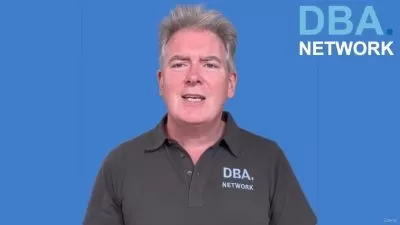Research Methods
9:33:51
Description
How science is (supposed to be) done.
What You'll Learn?
- • Comprehensive Understanding of Scientific Social Research
- • Critical Analysis of Existing Scientific Literature
- • Creation of Academically Sound Research Proposals
- • Development of Robust Research Methodologies
- • Recognition and Mitigation of Ethical Considerations
- • Enhancement of Communication Skills
Who is this for?
What You Need to Know?
More details
DescriptionScience is the greatest process that humanity has for improving the world. From life saving medicine to the internet to predicting hurricanes to landing humans on the moon, science has led to humanity's greatest achievements. This course will teach you how that scientific process works, with details and examples of how and why each stage in the process should be performed.
While primarily focusing on social science, this course is applicable to many areas of study. It covers topics as diverse as ethics, statistics, experiments, and validity. It will empower you not only to continue on a path to conducting your own research, but also to be a good, responsible consumer of research performed by others. Unfortunately, the world is full of people who want to take advantage of you. Frequently, these bad actors utilize pseudoscience to try and get people to believe things that just aren't true. This course will give you the skills to be able to recognize those false and misleading claims. It is a beneficial area of study, even if you never intend to conduct research yourself!
Lectures in this course:
Introduction
Logical Errors
Types of Research
Research Questions
Ethics
Conceptualization
Operationalization
Data and Variables
Sampling
Sampling Methods
True Experiments
Quasi Experiments
Validity
Surveys
Survey Options and Problems
Qualitative Research
Qualitative Methods
Secondary Data
Evaluation Research
Data Analysis
Regression
Papers
Citations (APA)
Who this course is for:
- University students
- People interested in science
- Future Researchers
- Social Scientists
Science is the greatest process that humanity has for improving the world. From life saving medicine to the internet to predicting hurricanes to landing humans on the moon, science has led to humanity's greatest achievements. This course will teach you how that scientific process works, with details and examples of how and why each stage in the process should be performed.
While primarily focusing on social science, this course is applicable to many areas of study. It covers topics as diverse as ethics, statistics, experiments, and validity. It will empower you not only to continue on a path to conducting your own research, but also to be a good, responsible consumer of research performed by others. Unfortunately, the world is full of people who want to take advantage of you. Frequently, these bad actors utilize pseudoscience to try and get people to believe things that just aren't true. This course will give you the skills to be able to recognize those false and misleading claims. It is a beneficial area of study, even if you never intend to conduct research yourself!
Lectures in this course:
Introduction
Logical Errors
Types of Research
Research Questions
Ethics
Conceptualization
Operationalization
Data and Variables
Sampling
Sampling Methods
True Experiments
Quasi Experiments
Validity
Surveys
Survey Options and Problems
Qualitative Research
Qualitative Methods
Secondary Data
Evaluation Research
Data Analysis
Regression
Papers
Citations (APA)
Who this course is for:
- University students
- People interested in science
- Future Researchers
- Social Scientists
User Reviews
Rating

Udemy
View courses Udemy- language english
- Training sessions 23
- duration 9:33:51
- Release Date 2025/02/23









